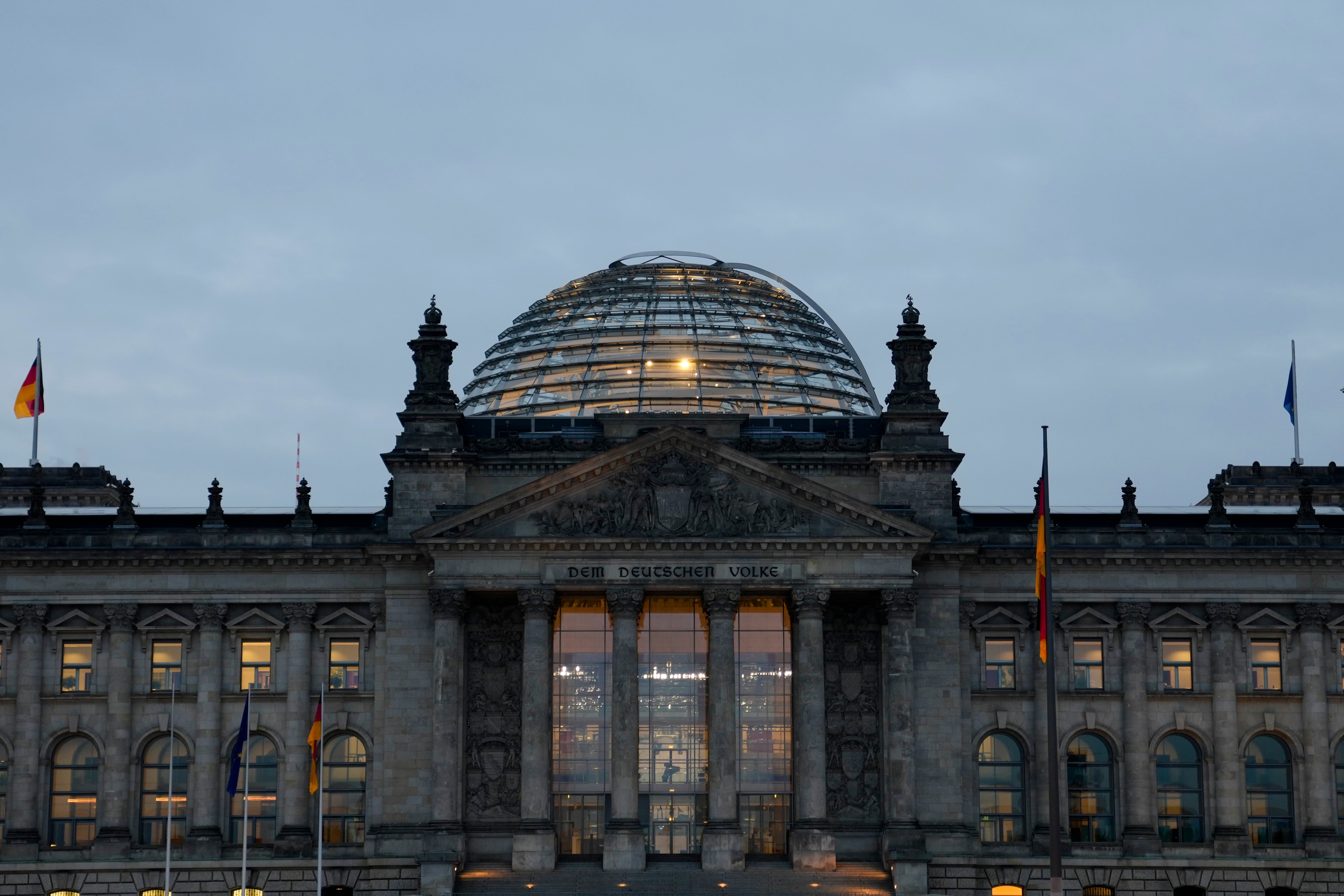Germany's newly elected parliament to convene for first time
Germany’s newly elected parliament is set to hold its first meeting

Your support helps us to tell the story
From reproductive rights to climate change to Big Tech, The Independent is on the ground when the story is developing. Whether it's investigating the financials of Elon Musk's pro-Trump PAC or producing our latest documentary, 'The A Word', which shines a light on the American women fighting for reproductive rights, we know how important it is to parse out the facts from the messaging.
At such a critical moment in US history, we need reporters on the ground. Your donation allows us to keep sending journalists to speak to both sides of the story.
The Independent is trusted by Americans across the entire political spectrum. And unlike many other quality news outlets, we choose not to lock Americans out of our reporting and analysis with paywalls. We believe quality journalism should be available to everyone, paid for by those who can afford it.
Your support makes all the difference.Germany’s newly elected parliament is set to hold its first meeting on Tuesday. The 736-member lower house, or Bundestag, is expected to elect as its new speaker Baerbel Bas of the center-left Social Democrats which emerged from last month’s election as the strongest party.
German Chancellor Angela Merkel will attend the meeting although she is no longer a lawmaker. She will be sitting on the visitor stands of parliament. Later in the afternoon, German President Frank-Walter Steinmeier will formally dismiss Merkel and her Cabinet though they will be asked to stay on in a caretaker capacity until a new government is in place.
The three parties that hope to form Germany’s new government said last week they aim to have the country’s next chancellor in place in early December, but acknowledged that they face a complex task.
The Social Democrats, environmentalist Greens and pro-business Free Democrats opened formal coalition talks following a preliminary deal earlier this month, which set out their priorities but left many open questions.
German coalition talks are an elaborate affair, producing an agreement that sets out details of the government’s program for its four-year term. They have tended to get longer over the years as the country’s political landscape has fragmented, meaning that elections rarely produce parliamentary majorities for traditional allies.
If the negotiations succeed, the new government will send Merkel’s center-right Union bloc into opposition after 16 years at the helm. Her successor will be Olaf Scholz who propelled the Social Democrats to a narrow election victory on Sept. 26. He is the vice chancellor and finance minister in the current government.